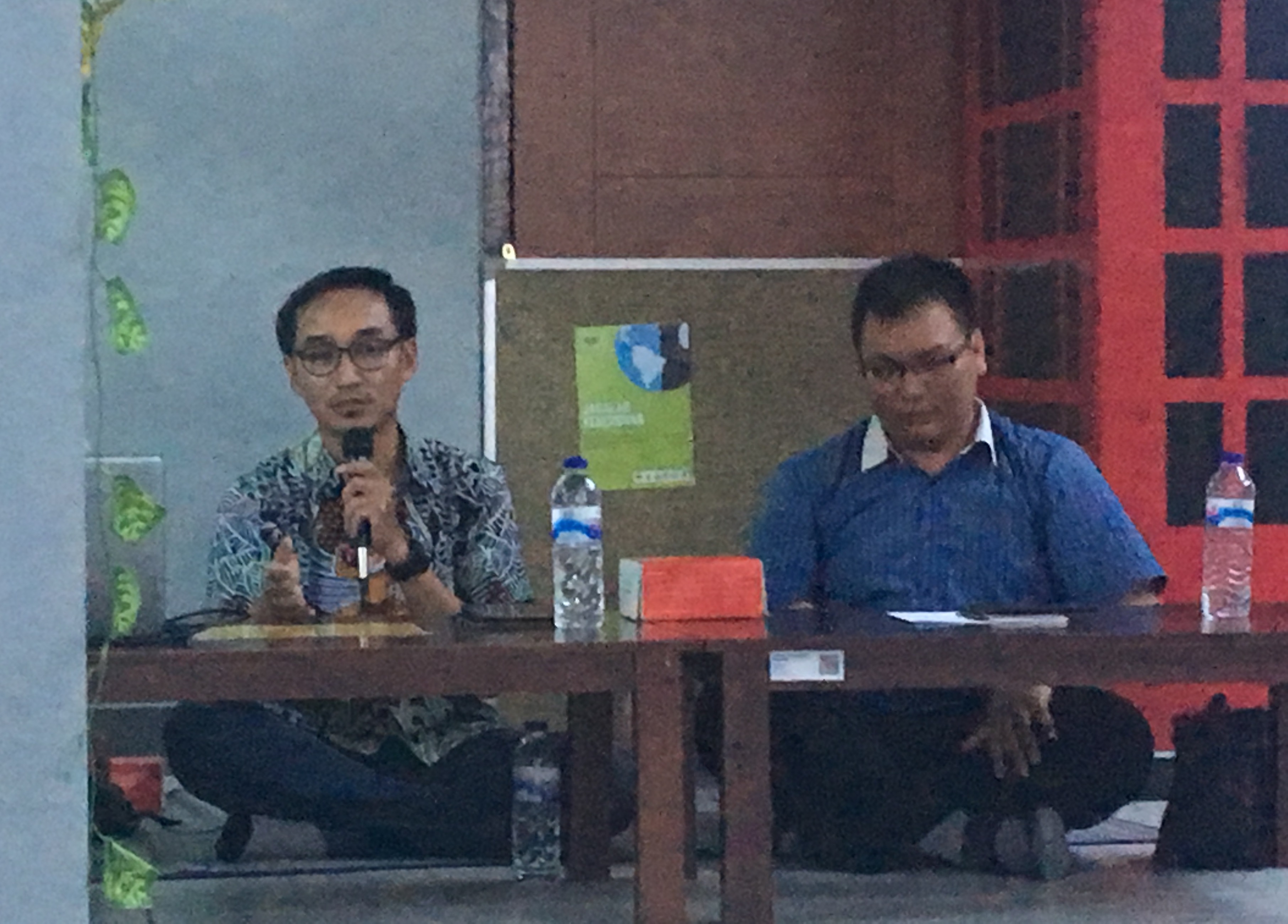UNAIR NEWS – Universitas Airlangga (UNAIR) Faculty of Humanities (FIB) Student Executive Board (BEM) held a discussion about hate speech on social media. The discussion on Wednesday, March 20, 2019 was attended by religious leaders and lecturers. It discussed the persecution case of Biksu Mulyanto, in South Tangerang.
The speakers included the Head of Sidoarjo Dharma Bhakti Temple Nico Tri Sulistyo Budi and UNAIR FIB Lecturer, Gesang Manggala Nugraha Putra S.S., S.A., M. Hum. The discussion was held by Ministry of Religious Affairs BEM FIB UNAIR as an overview of the dynamics and polemics of religion in Indonesia.
In the discussion, Nico as a Buddhist leader explained the beginning of the case which started from a misunderstanding. Biksu Mulyanto as a native in the village was accused of making the house where he lives as a place of worship.
“People who persecuted him are mostly migrants who do not have a sense of tolerance, as they only uphold forms of paper legality or place permits, but ignore the social legality in life as a social society,” he said.
Public suspicion arose from the habits of Monk Mulyanto, who was often visited by Buddhist worshipers and released animals in the village. Actually the monks themselves were bound by 242 regulations. Food for monks must be delivered, and later the monks will pray for by the people who come.
“Regarding the animals released and it was termed as a process of Buddhism is clearly incorrect. Because in Buddhism releasing animals is a form of love or fangsen, as long as the animals released are not dangerous, such as fish, “he said.
On that occasion, Gesang also talked about the role of the media and its rapid flow of information. He explained about media framing, framing conflict, and media (de) framing. In the current era many people use media that can have positive and negative impacts.
“The impact of everyone who can produce news makes it more confusing. As said that the news that was made could be my version, your version, and the actual event, “he said.
The discussion then ended with a question and answer session and shared experiences from presenters and students. In the case of hate speech, it is explained that religion is present so that people can respect each other and live in harmony. Because religion is not to be used as a tool of war. (*)
Author: Wildan Ibrahimsyah
Editor: Binti Q. Masruroh





